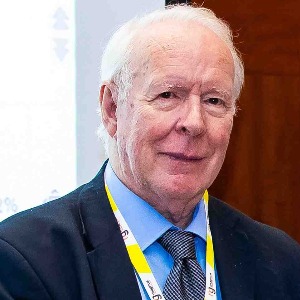Dental Biomaterials and Regenerative Dentistry
In recent years, the integration of dental biomaterials into regenerative dentistry has opened up new possibilities for advancing oral health treatments. These materials, engineered to mimic the properties of natural tooth and bone tissue, are essential in improving both the functionality and longevity of dental restorations. Regenerative dentistry leverages biomaterials to regenerate lost or damaged tissues, such as bone or dentin, through methods like tissue engineering and cellular therapy. Key innovations include biodegradable scaffolds, growth factors, and 3D-printed implants, all contributing to the restoration of the natural oral environment. As research continues, these technologies promise to enhance the efficacy of dental implants, crowns, and bridges, while promoting better healing and reducing the risk of complications in restorative treatments.

David Geoffrey Gillam
Queen Mary University of London, United Kingdom
Christopher Turner
Spacemark Dental, United Kingdom




Title : Evaluating hygienist follow up for head and neck oncology patients in secondary care: Results from a two cycle audit
Peter Basta, Newcastle Dental Hospital, United Kingdom
Title : Atypical facial pain unravelled
Christopher Turner, Spacemark Dental, United Kingdom
Title : New treatment of temporomandibular disorder through muscle balance and muscle regeneration by activation of quiescent muscle stem cells( satellite cells) with mitochondrial dynamics
Ki Ji Lee, National Reserach Foundation & Busan Medical University, Korea, Republic of
Title : MRONJ and ORN: Referral or management in primary care? Navigating guidelines in the context of long waiting lists
Alisha Sagar, NHS England, United Kingdom
Title : Managing the unexpected: An Insight into supernumerary teeth
Bahar Gharooni Dowrani, Guy's and St Thomas' NHS Foundation Trust, United Kingdom
Title : Laxative prescribing for post operative head and neck cancer patients at Derriford Hospital
Pui Sze Kylie Li, Cardiff and Vale University Health Board, United Kingdom